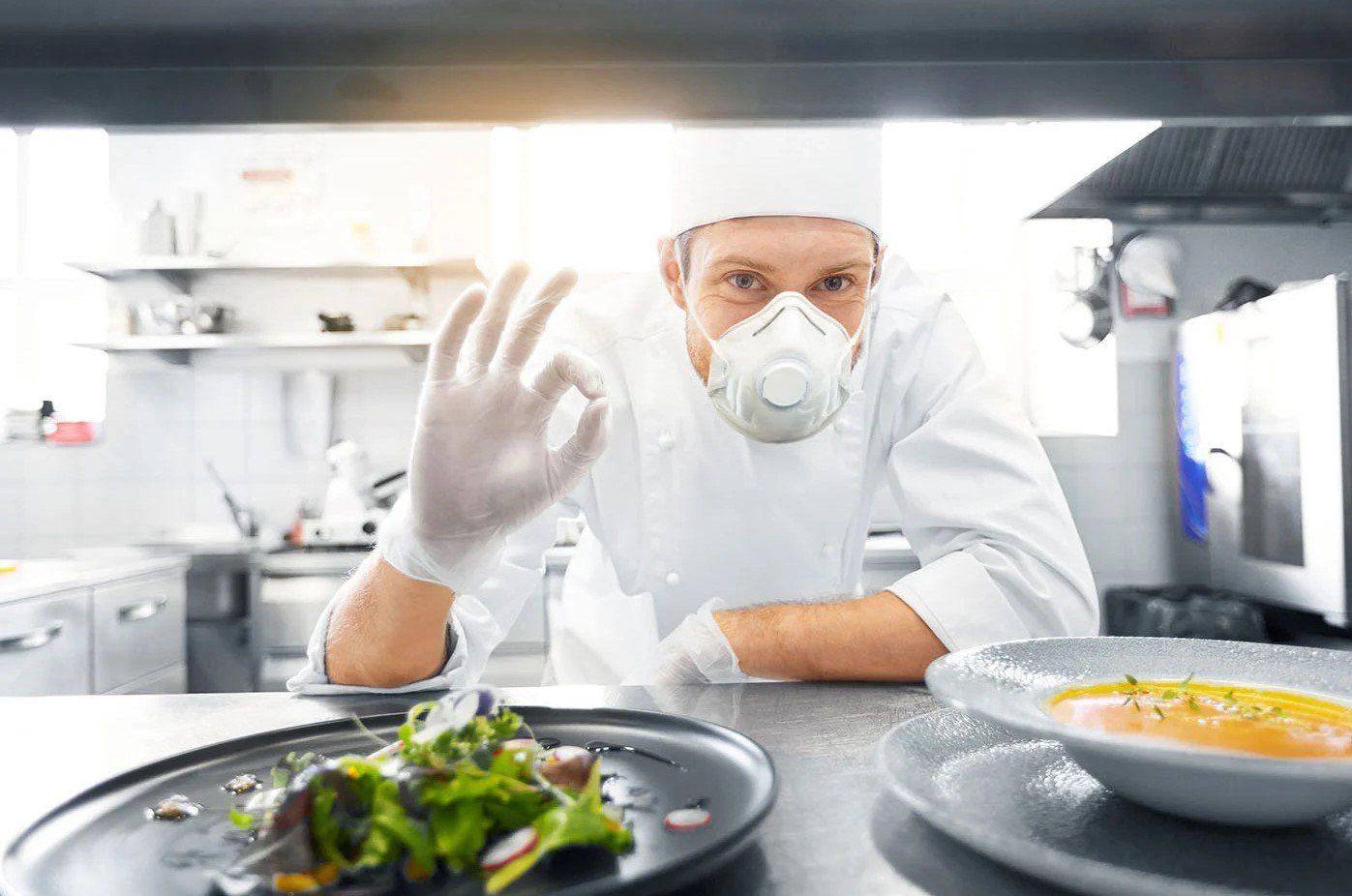
COVID-19 guidelines for the Food Industry
The ongoing COVID-19 epidemic has had a devastating effect on the global economy and health. Most businesses are either closed or operating below capacity due to government restrictions. However, the food sector around the world must remain operational to feed the people. In the midst of these terrible and strenuous times, it is very important to maintain the safety of the workers and food because it’s the only way to maintain the confidence of the consumers. This article is all about COVID-19 and its impacts on food industry.
Potential transmission of COVID-19 through food
COVID-19 or coronavirus disease is a respiratory illness that spreads from person-to-person. It is mainly spread by inhaling respiratory droplets when someone infected with COVID-19 coughs, sneezes, or when the virus hangs in the air. The good news is that experts don’t think coronavirus spreads through food, but it does lives on surfaces. It breaks down over time and becomes inactive but how long that takes depends upon the surface ragging from several hours to a few days. The virus that causes COVID-19 is different from food-borne viruses, and it does not multiply in the food. There’s also no evidence yet of COVID-19 being transmitted through food or food packaging. So, we can conclude that the chances of contracting COVID-19 through food are pretty low.

As I have mentioned above, COVID-19 is primarily transmitted person-to-person. That’s why restaurants' dining rooms are closed in almost every part of the United States. The big problem is not the food – it’s us being around each other in close quarters, talking, laughing, working, and inhaling each other’s spittle.
You can ask people to stay at home, limit outings, and limit contact with other people, but we all need to eat; making it impossible to shut the food industry. Let’s explore the most important CDC, FDA, and WHO guidelines that every food industry should follow:

Social distancing: It is very important to keep yourself distanced from others when possible; even if you or they have no symptoms of COVID-19. This minimizes the chances of person-to-person virus transmission through infectious respiratory droplets. So, all food businesses should follow the social distancing guidelines as far as feasible.
- Stay at least 6 feet or about 2 arms’ length from other people.
- Stay away from crowded places.
- Avoid mass gatherings.
Mask Usage: The primary purpose of wearing a face-mask is to protect others from contracting COVID-19 if you have it. You could spread COVID-19 to others even if your body is showing no symptoms of being infected. This is why CDC and other health originations around the globe have recommended wearing face masks. Face masks are great, but they are only effective if they’re worn correctly. Follow the below mask-wearing guidelines:
- Before wearing your mask, wash your hands thoroughly with a good hand sanitizer.
- Wear it in such a way that it covers your entire nose and mouth; no gaps.
- While your mask is on, avoid touching it. If you have to adjust, use gloves and then throw them away.
- Take your mask off by removing the loops around your ears. So, you don’t have to touch your face.
Hand Washing: Though washing hands with sanitizers or soaps is always a good practice, it is more important than ever for your health and the health of others in your work area.
Wash your hands before:
- Starting a work
- Putting on gloves
- Smoking
- Wearing a face mask
- Taking a break
- Eating
- Touching your face
Wash your hands after:
- Your shift ends
- Eating
- Touching your face
- Sneezing, coughing, or blowing your face.
- Removing your face mask
- Smoking
- Using restroom
Also, remember to wash your hands anytime they are visibly dirty and also follow your company’s policies and procedures for proper hand hygiene.

Clean & Disinfect: Cleaning and disinfecting of the high-touch surfaces and items such as tabletops and doorknobs is highly recommended. Cleaning and disinfecting or two different things. Cleaning is the process of removing the dust; so, do that first. Disinfecting kills germs present on the surfaces, but make sure to use an EPA registered disinfectant.
Employee health screening: Due to the nature of the COVID-19 virus, what happens to your outside of work can have a direct effect on others in your workplace. That’s why employee health screening is so important. So, food businesses should implement screening policies to protect their employees and prevent spread. These policies could include practices like symptoms questionnaires and temperature checks.
Glove usage: Workers in the food industry can use disposable gloves, but never allow your employees to use them as a substitute for handwashing. According to WHO guidelines, gloves must be changed frequently; after performing any non-food-related activity such as touching doors or bins. Food industry workers should also be aware that wearing gloves will build up bacteria on the surface of the hands. So, they should always remember to wash their hands after removing the gloves.
Controlling COVID-19 outside work is also very Important:
You may have heard sayings about leaving home issues at home and work issues at work. Unfortunately, the virus causing COVID-19 does not play by those rules. What employees do outside of work can have a big impact on the health and safety of their co-workers. That’s why employees must follow the above guidelines in their personal lives as well. We specifically recommend that individuals continue to avoid large gatherings and try to avoid exposure to others outside their families. If you or someone in your family may have been infected with the COVID-19 virus, you must notify your employer.

Leave a comment